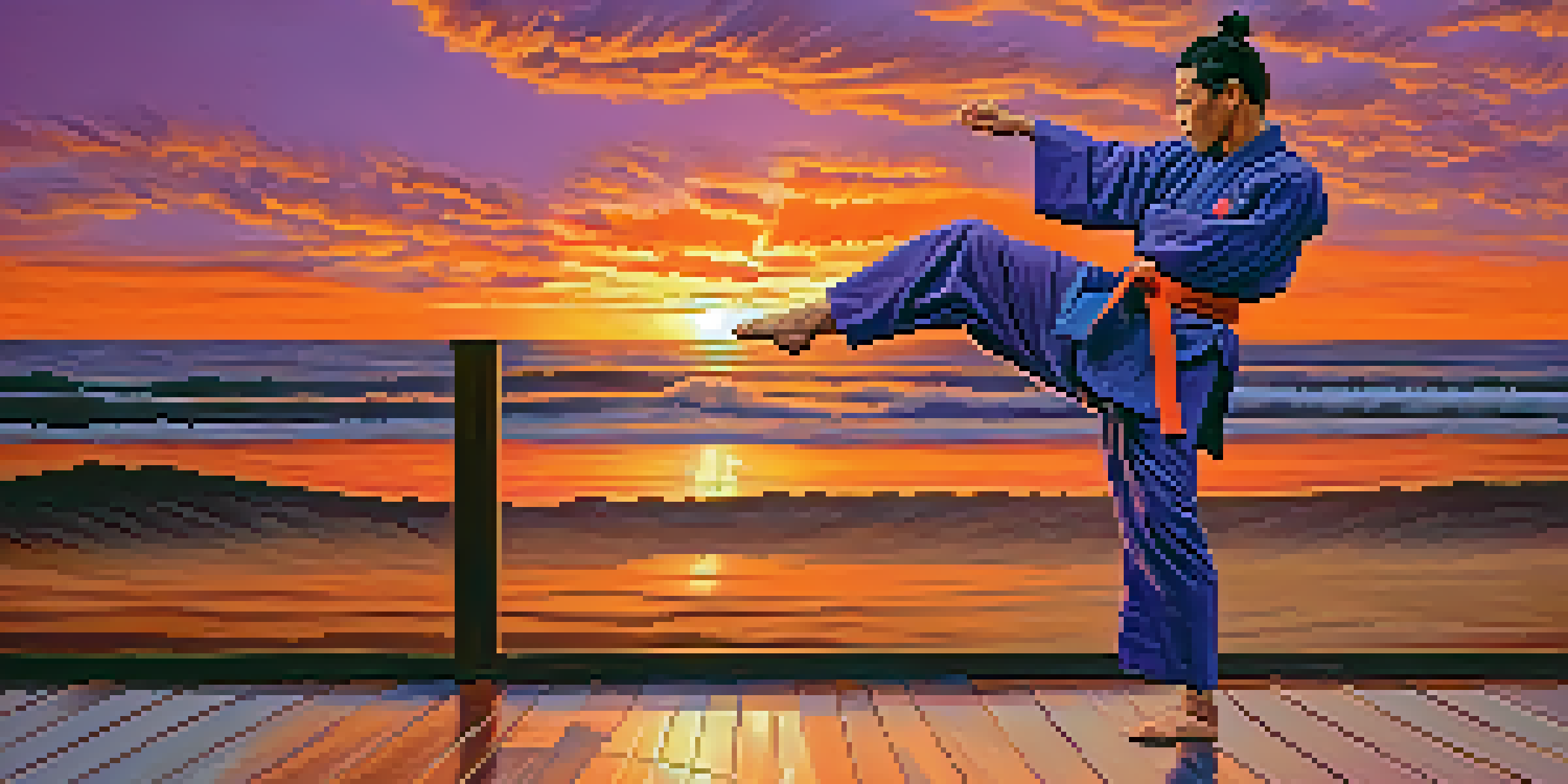Martial Arts in Reality Television: Authenticity vs. Entertainment

The Rise of Martial Arts in Reality TV
In recent years, martial arts have found a prominent place in reality television, captivating audiences worldwide. Shows like 'Ultimate Fighter' and 'American Ninja Warrior' showcase not just the physical prowess of competitors, but also their personal stories. This blend of athleticism and narrative creates a compelling viewing experience that draws fans from both sports and entertainment backgrounds. As martial arts continue to gain popularity, they also highlight the diverse skills and backgrounds of practitioners.
Authenticity: What Does It Mean in Reality TV?
When we talk about authenticity in reality television, we're referring to how true the content is to the real-life experiences and skills of participants. In martial arts, this means showcasing genuine techniques and training regimens rather than staged fights or choreographed sequences. Audiences can often tell when something feels forced or scripted, which can lead to a loss of credibility. Authenticity not only respects the art form but also honors the hard work of the martial artists involved.
Authenticity in Martial Arts Shows
Genuine representation of martial arts techniques and training is crucial for maintaining credibility in reality TV.
Entertainment vs. Authenticity: A Balancing Act
Reality TV producers face the challenge of striking a balance between entertainment and authenticity. While thrilling fight scenes and dramatic storylines keep viewers engaged, they can sometimes overshadow the true essence of martial arts. For instance, a show might prioritize sensationalism over skill, leading to misconceptions about the actual techniques used in the sport. This tension raises important questions about the responsibility of producers to deliver an accurate representation of martial arts.
The Influence of Editing in Reality Shows
Editing plays a crucial role in shaping how martial arts are presented on reality television. Producers often edit footage to create suspense or highlight certain moments, which can skew the viewer's perception of events. For example, a quick cut might make a fighter's performance seem more impressive than it truly was, leading to a distorted understanding of their skill level. This manipulation of time and context can be entertaining, but it also raises concerns about how martial artists are portrayed.
Balancing Entertainment and Truth
Producers must navigate the tension between creating engaging content and accurately portraying the discipline of martial arts.
Public Perception: Martial Artists as Celebrities
The portrayal of martial artists in reality TV has transformed many athletes into household names, often elevating their status to that of celebrities. This newfound fame can bring attention to the sport and inspire a new generation of practitioners. However, it can also lead to unrealistic expectations about what it means to be a martial artist, as viewers may focus more on the drama than the discipline. Striking a balance between celebrity culture and the true spirit of martial arts is essential for maintaining integrity.
Impact on Training and Skill Development
Reality television can significantly influence how martial artists approach their training and skill development. With the spotlight on them, many feel pressure to perform and innovate, which can lead to both positive and negative outcomes. On one hand, it can motivate athletes to push their limits and refine their techniques. On the other hand, the desire for camera-ready performances might divert focus from fundamental skills to entertaining showmanship.
Community Building Through Reality TV
Reality television fosters fan engagement and community around martial arts, connecting viewers with contestants' personal journeys.
Fan Engagement and Community Building
Reality TV has the unique ability to engage fans and build communities around martial arts. Viewers often feel a connection to contestants through their stories, struggles, and triumphs, leading to increased interest in martial arts training. Social media platforms amplify this engagement, allowing fans to interact with their favorite fighters and share their own experiences. This sense of community can foster a supportive environment for both new and seasoned martial artists.
The Future of Martial Arts in Reality Television
As we look to the future, the relationship between martial arts and reality television will likely continue to evolve. Producers are becoming more aware of the need for authenticity, which could lead to shows that better represent the discipline and techniques involved. Additionally, as audiences demand more genuine content, we may see a shift towards programs that prioritize skill over sensationalism. Ultimately, the challenge will be to maintain the excitement of reality TV while honoring the rich traditions of martial arts.